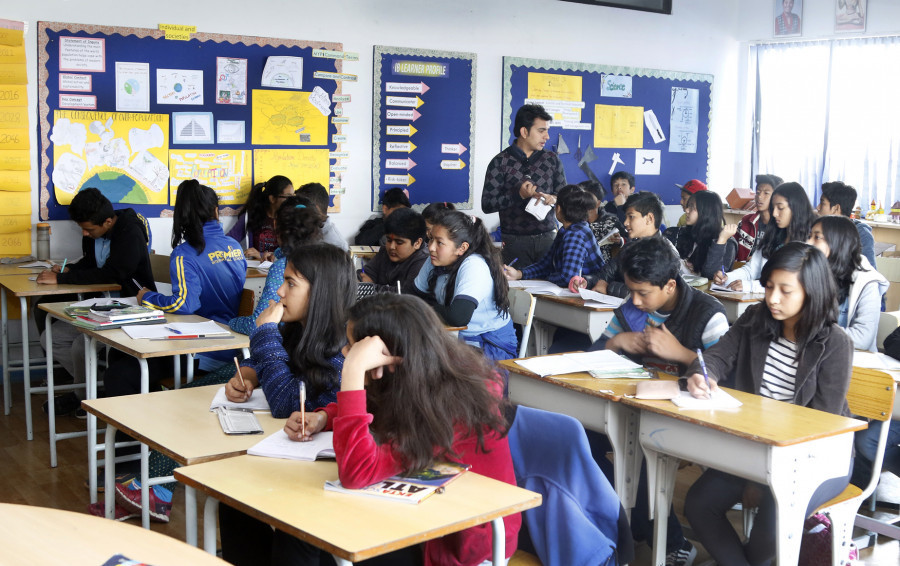National
Ministry decides to extend school year by 2 months
The new academic year will now begin only in mid-June, instead of April, and will be only 10 months long.
Binod Ghimire
The government has decided to extend the ongoing academic year by two months to compensate for time lost due to the Covid-19 pandemic.
The academic session, which was supposed to end in April, will now conclude only in June as students haven’t had time to study properly due to the months-long lockdown to contain the pandemic, said Minister for Education Krishna Gopal Shrestha.
“The current academic session will end in Jestha (mid-June) as teaching-learning was affected by the pandemic,” said Shrestha at a programme on Wednesday. “We will make up for the added time next year by reducing the academic year to 10 months,” said the minister.
Schools across the country were forced to shut down following the Covid-19 lockdown, which started on March 24. They started to reopen late in 2020 after the government eased restrictions put in place to contain the spread of the virus.
On September 20, the government slashed the prescribed study hours and reduced the course load for students by 30 percent with the objective of wrapping up the academic year by April. As per the Curriculum Adjustment Framework prepared by the Curriculum Development Centre, students from grade 1 to 3 need to complete 690 hours of classes, while those from grades 4 to 10 need to attend 848 hours of classes, compared to 1,024 hours prescribed for regular years.
With the reduction in the curriculum and the study hours, the government also authorised the resumption of schools in coordination with the local governments. However, schools in most parts of the country couldn’t run in-person classes due to various reasons, prompting the government to extend the academic session.
Minister Shresthat said this year’s Secondary Education Examination (SEE) will also be held in June.
Although the government directed schools to conduct virtual classes from June 15, it didn’t consider such classes as a means to engage students, and not as a formal teaching-learning environment.
The Curriculum Adjustment Framework that came into effect in September recognised virtual classes conducted through radio, through television, online study and off-line study in addition to face-to-face learning.
The government even announced that it would provide free sim cards and data packs to students who don't have access to the internet. However, virtual learning couldn’t be effective in the majority of schools, except some in the cities and towns.
A study carried out by the National Campaign for Education, an umbrella body of over 300 organisations working in the education sector, in November showed virtual learning was ineffective for 64.3 percent of students surveyed. Similarly, a report by UNICEF showed three out of ten students do not have access to any of the virtual teaching-learning mediums.
Guardians say the extension was necessary as students barely got time to study. “I believe the extension was necessary,” Suprabhat Bhandari, chairperson of Guardian’s Federation Nepal, told the Post. “An additional two months will allow students to compensate for the time lost during the pandemic.”
The Education Ministry had consulted various stakeholders before deciding to extend the current academic year.
A majority of schools, mainly outside Kathmandu, have started face-to-face learning.
Around seven million students study at the school level from 36,000 schools across the country. Around 80 percent of them study in around 29,000 public schools.
“It was necessary to extend the current academic session,” Ritu Raj Sapkota, chairperson of the National Private and Boarding Schools’ Association Nepal, told the Post. “However, I don’t understand why it took so long to decide on an important issue like the academic session.”




 16.12°C Kathmandu
16.12°C Kathmandu














